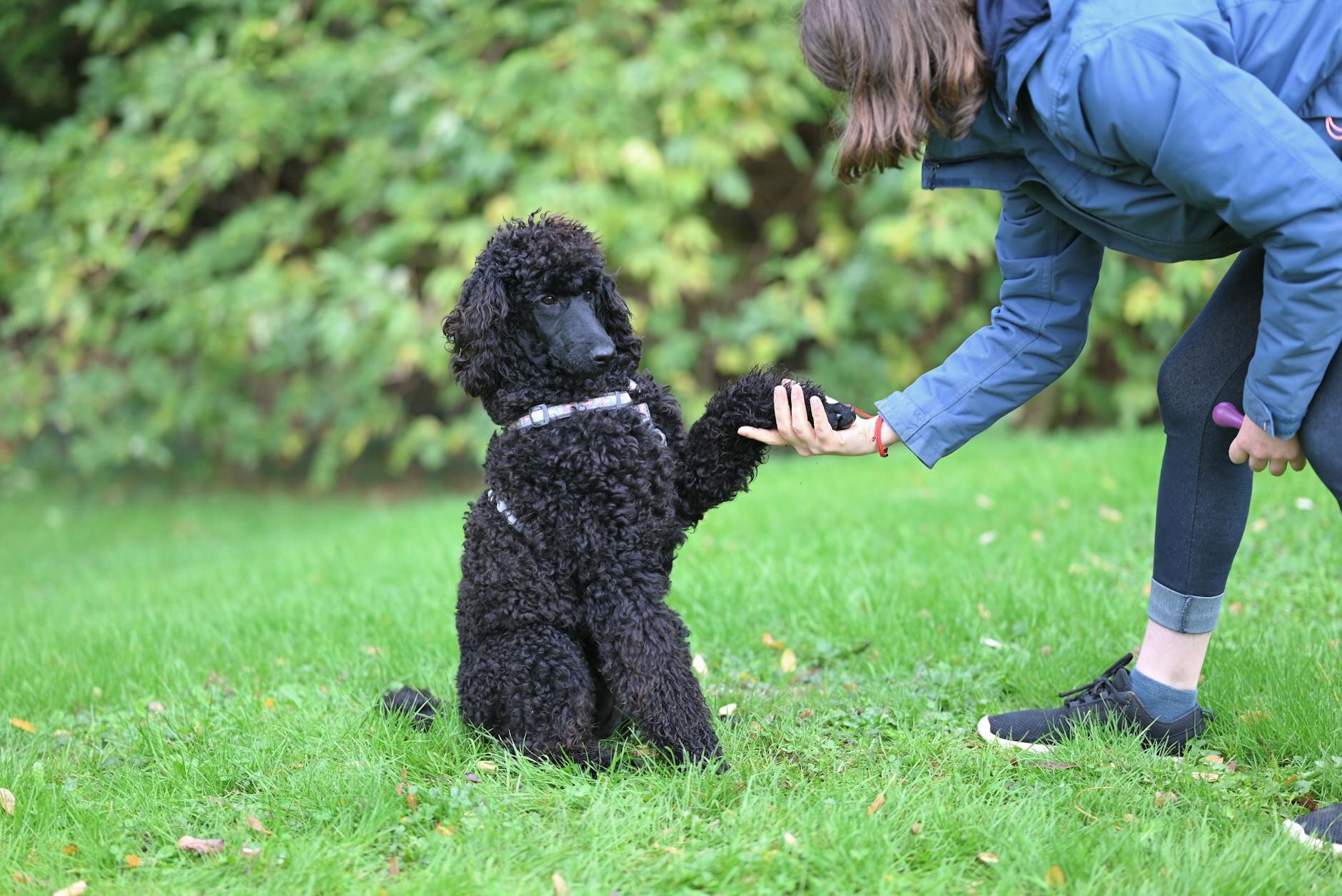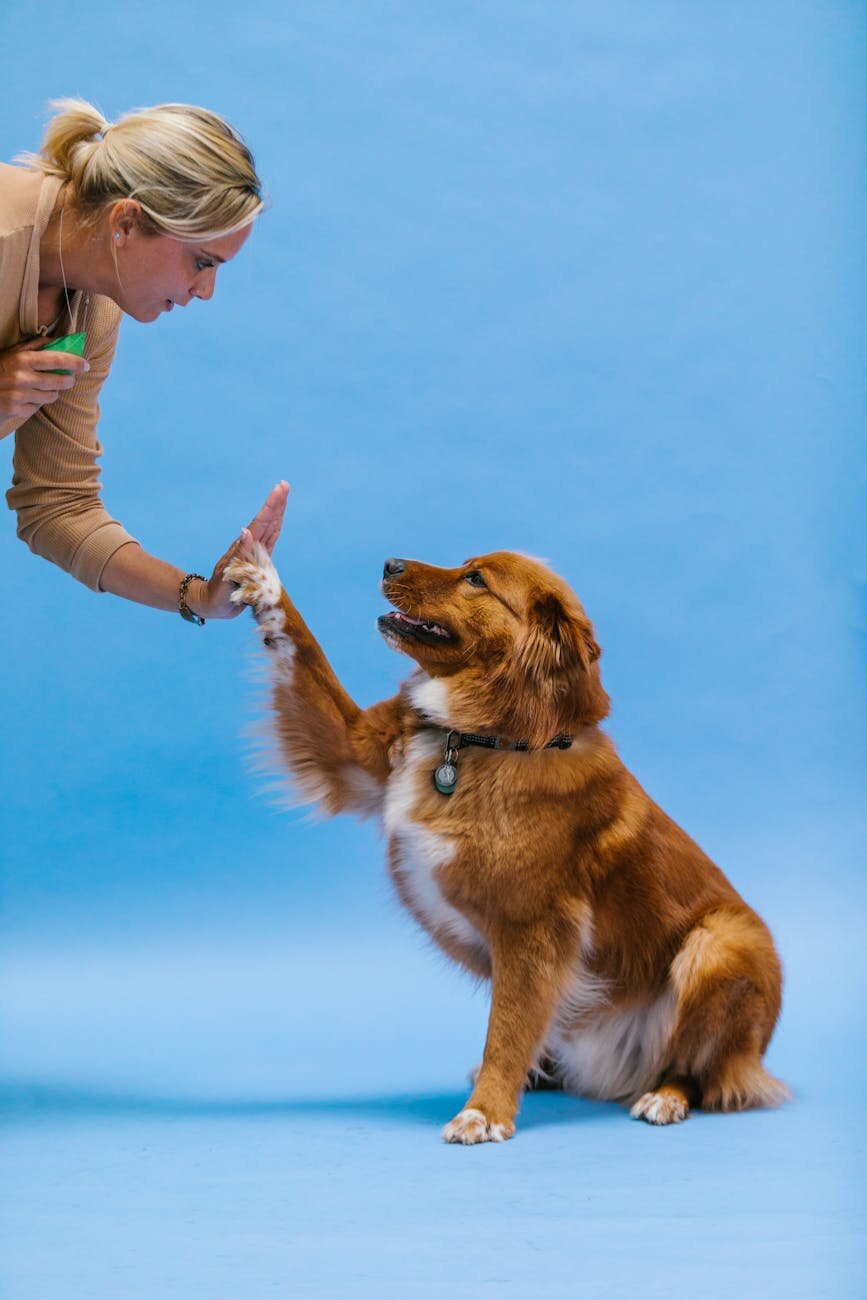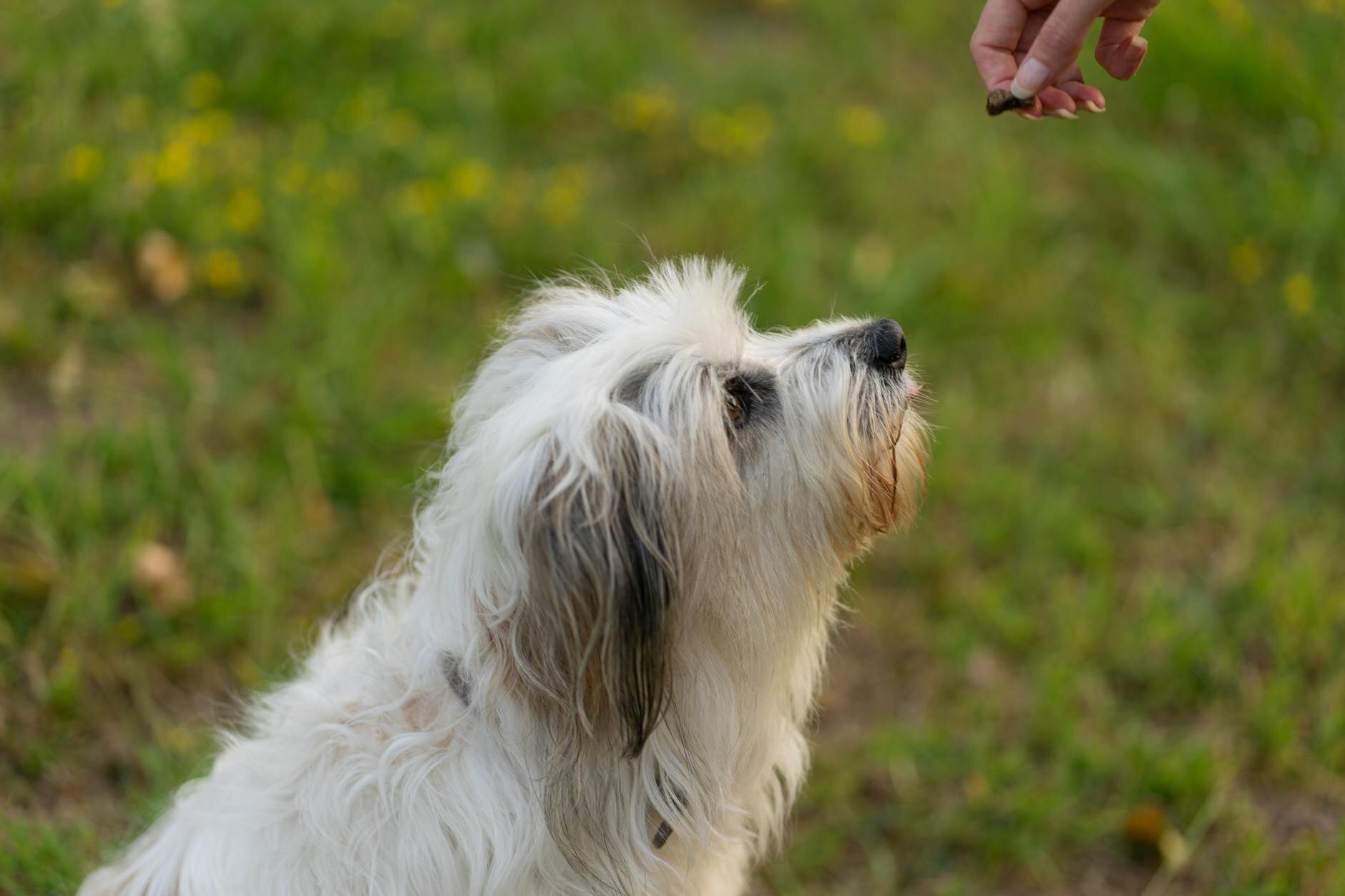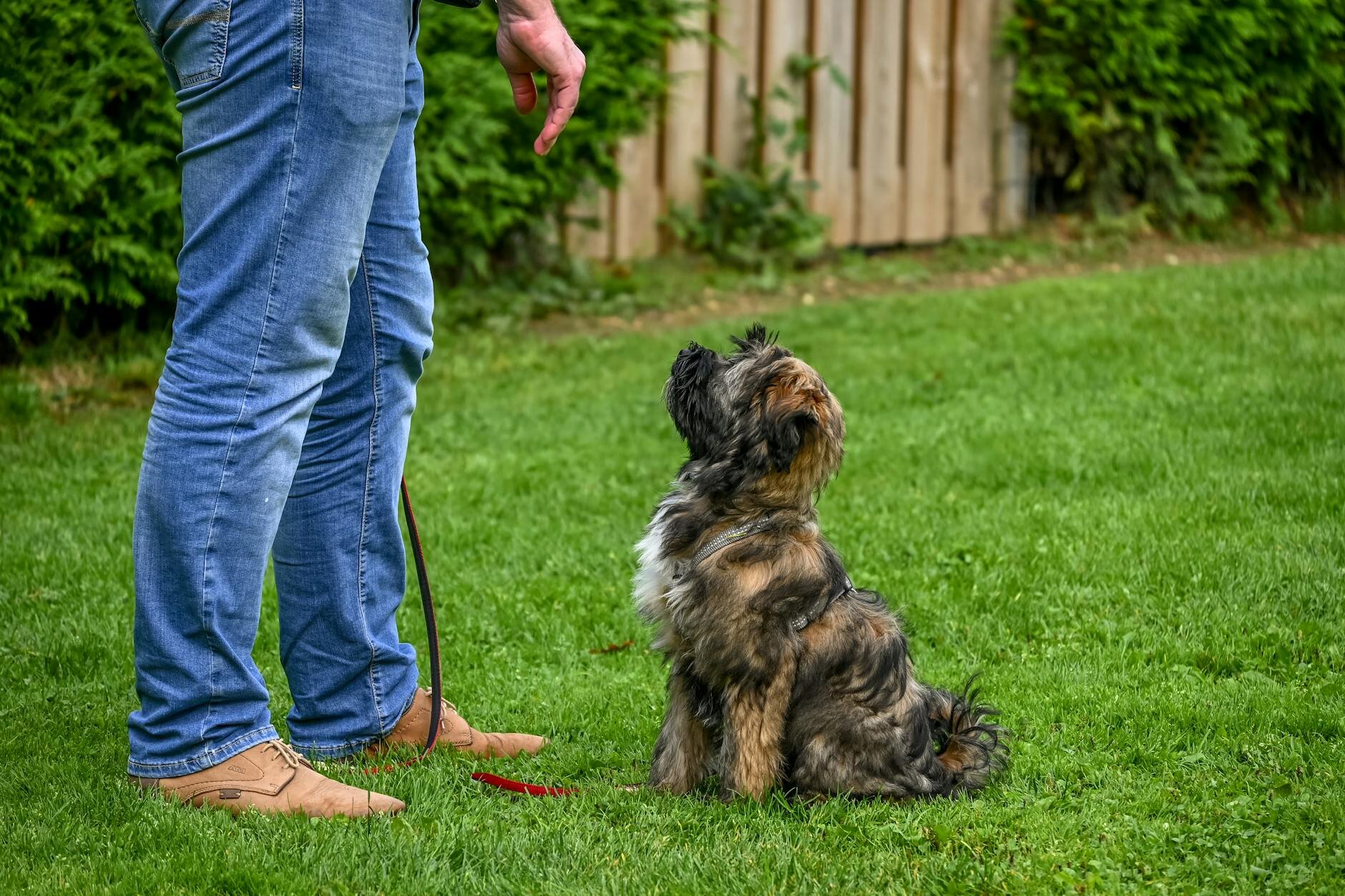Last Updated: 03/02/2026
How to Find a Dog Trainer: 10 Tips for Finding the Right One
Choosing a dog trainer is a big decision for any pet parent. From checking qualifications to understanding positive reinforcement, our Australian vets share 10 essential questions to help you find a skilled professional who makes learning fun.
Author: Dr Brittany Ward BVSc
Reading Time: 7 minutes - short read
Training is more than just teaching "sit" or "stay"; it is the foundation of a lifelong bond between you and your best friend. A well-trained dog is a confident dog, capable of navigating the world safely by your side. However, the dog training industry can be a bit of a minefield to navigate. Whether you are bringing home a wiggly new puppy or working through complex "teenage" tantrums, finding a trainer who uses the right science-based methods is vital. Choosing the wrong approach can lead to fear and setbacks, so let’s look at how to spot a professional who will help your dog truly shine.
In this article
- Choosing a local dog trainer
- Choosing a trainer with a good reputation
- Checking qualifications and industry standards
- Ensuring your dog is healthy and ready for school
- Matching training levels to your dog's needs
- The importance of experience and references
- Understanding positive reinforcement training methods
- Building a relationship with your dog trainer
- Ensuring you and your dog feel comfortable
- Setting goals and finding an adaptable trainer
- FAQs
Choosing a local dog trainer

Looking for a trainer locally is a good place to start, especially if you are looking to train a puppy. Driving your dog long distances might be stressful for them, so start close to home. You may need to look for a trainer a little bit further away if you are looking for some to help with more difficult problem behaviours.
Do you need to travel a long distance to your trainer? This might happen if you live in a remote area or need a trainer with more advanced behavioural problem experience. If you are, check out our Top Tips For Travelling With Your Pet to make the trip as pleasant as possible.
Choosing a trainer with a good reputation
Often the best way to find a dog trainer is through word of mouth.
Ask your friends and neighbours or even community pages who they recommend. Your dog is unlikely to be the first dog your trainer has ever taught, so ask around about other people's experiences with them. A good trainer will also come with a good reputation amongst other dog owners.
Checking qualifications and industry standards
Like medicine, our knowledge of dog behaviour and the best practices are always improving, so it might be reassuring to know that your trainer has had formal, up to date training. In Australia, qualified dog trainers usually have either a Certificate III in Dog Behaviour and Training or a Certificate IV in Companion Animal Services. A training certificate is not a requirement to be a trainer, but it can show commitment to their career and education.
You can look for a qualified trainer through The Delta Institute, National Dog Trainers Federation or Association of Pet Dog Trainers.
Ensuring your dog is healthy and ready for school

Some behavioural issues, including anxiety and aggression, can stem from a place of pain. A good trainer will check that your dog has seen a vet and doesn't have any existing health problems that could be causing the behaviour. They will also make allowances for those problems or disabilities.
They should check your dog's vaccination and worming status as well, to keep your dog and their clients' dogs safe.
Matching training levels to your dog's needs
Not all trainers will offer the same services, so it is important to know exactly what level of training you are looking for. Some trainers may limit their services to Puppy School and obedience classes, others may focus on training therapy or service dogs. Some trainers may offer agility and dog sport classes. Make sure the trainer you are looking at is going to offer the level of training you are interested in. In some cases, you may have to use the services of multiple trainers.
Learn more about Agility Training for Dogs.
The importance of experience and references
If you are looking for help with a behavioural problem, like reactivity, then you want to know that your trainer has experience working with dogs requiring more advanced training and that they have been successful before.
They should be able to give you specific examples or client references for their success cases. It is also reassuring to know how long they've been training for and what levels of difficulty in dogs they've trained.
Understanding positive reinforcement training methods

The presently accepted, preferred method of training is positive reinforcement. This method involves adding something your dog likes (a reward) to a desirable behaviour to increase the likelihood of that behaviour occurring again.
Your trainer should NEVER use punishment based training methods, and the dominance theory has now been debunked. Avoid trainers that talk about being "alpha" or "dominating" your dog and those who do things to your dog that they don't like (no hitting or lead yanking!). These training techniques are fear based, which can lead to increased aggression and worsening of behavioural problems. Trainers should also avoid recommending shock, prong or choke collars as these are punishment based training tools that can be very harmful if used incorrectly.
Building a relationship with your dog trainer
It's important that your trainer is friendly and welcoming, both to you and your dog. They should create a pleasant training environment and be open to discussing your dog's behaviour and history. Knowing your dog's history gives them insight into the reasons for their behaviour and the best way to approach the problem.
Your trainer should give you opportunities to take over and practise the techniques while they are there to correct your behaviour. They will also want to get your whole family involved. If everyone is trying a different training technique, this will confuse your dog and delay their improvement, so everyone needs to be on the same page.
Ensuring you and your dog feel comfortable
Be open to trying different trainers and finding a technique that works best for you. Training should be fun and both you and your dog should look forward to going!
If you are working with a trainer that you don't feel comfortable with, or their training doesn't seem to be working well for your dog, you don't have to stick with them. Staying with a trainer that you or your dog is uncomfortable with could lead to worsening of your dog's behaviour.
Anxious dogs are often too stressed to be responsive to training. If you need help with an anxious dog or your dog's anxiety seems to be interfering with your training routine, then check out our article How To Calm An Anxious Pet.
Setting goals and finding an adaptable trainer

There is more than one way to train a dog! So your trainer should be able to adapt to your dog's training styles and the goals you want to achieve. Undesirable behaviours don't always need to be completely trained out and many owners may wish to just reduce them to a manageable level. Make sure you know your training goals, and have an idea of what works for your dog, before meeting with a trainer.
FAQs
Finding the right trainer might take a little bit of "paws-on" research, but it is well worth the effort for your dog’s long-term happiness. By asking the right questions and prioritising positive, reward-based methods, you ensure that training remains a joyful experience for everyone involved. Remember, you are your dog's best advocate - if a session doesn't feel right, listen to your gut and keep looking until you find that perfect match!
Articles recommended for you
Check out our tips to stop your puppy from barking eating poo and digging from our vet team.
Does your dog lunge and bark at other dogs, people, or cars? This is reactivity, a response often rooted in fear, not aggression. Our comprehensive vet-authored guide explains how to identify triggers, manage situations, and use positive training like desensitisation to build your dog's confidence.
Tired of excessive barking? This vet's guide helps you understand the real reason your dog barks - from anxiety to boredom. Discover positive, punishment-free methods, including how to manage triggers, use enrichment, and train 'Speak' and 'Quiet' commands to restore peace to your home.
Choosing a vet is one of the most important decisions you'll make for your pet's long-term health. Learn how to evaluate local clinics, what qualifications to look for, and how to build a lasting partnership with your veterinary team.
Wondering how to teach your puppy to walk on the lead? See our training guide for tips and tricks to master the art of the walk.
Does your dog chew things they shouldn't? Read more about the causes behind it and how to stop it.
History
Our experts continually monitor the health and wellness space and we update our articles when new information becomes available.
Wed 4 Feb 2026
Edited by Dr Gillian Hill BVSc (Hons)Dr Brittany Ward BVSc
Veterinarian
Dr. Brittany graduated from James Cook University in 2019 with a Bachelor of Veterinary Science and started working in her home town in the Wide Bay-Burnett Region. She has always been excited about working in the veterinary industry, but over the last few years has grown especially fond of dog behaviour and training, surgery and orthopaedic disease.

